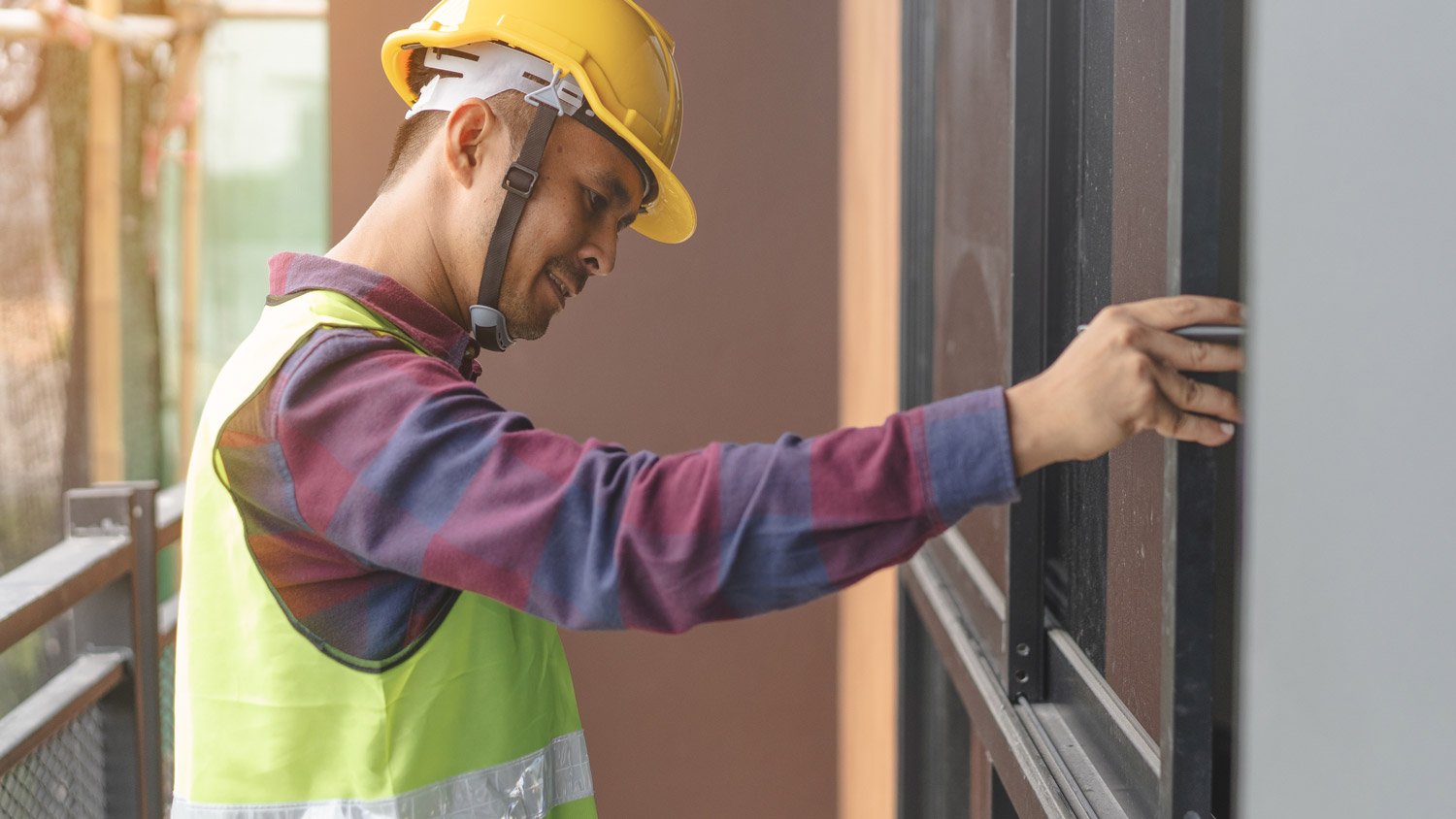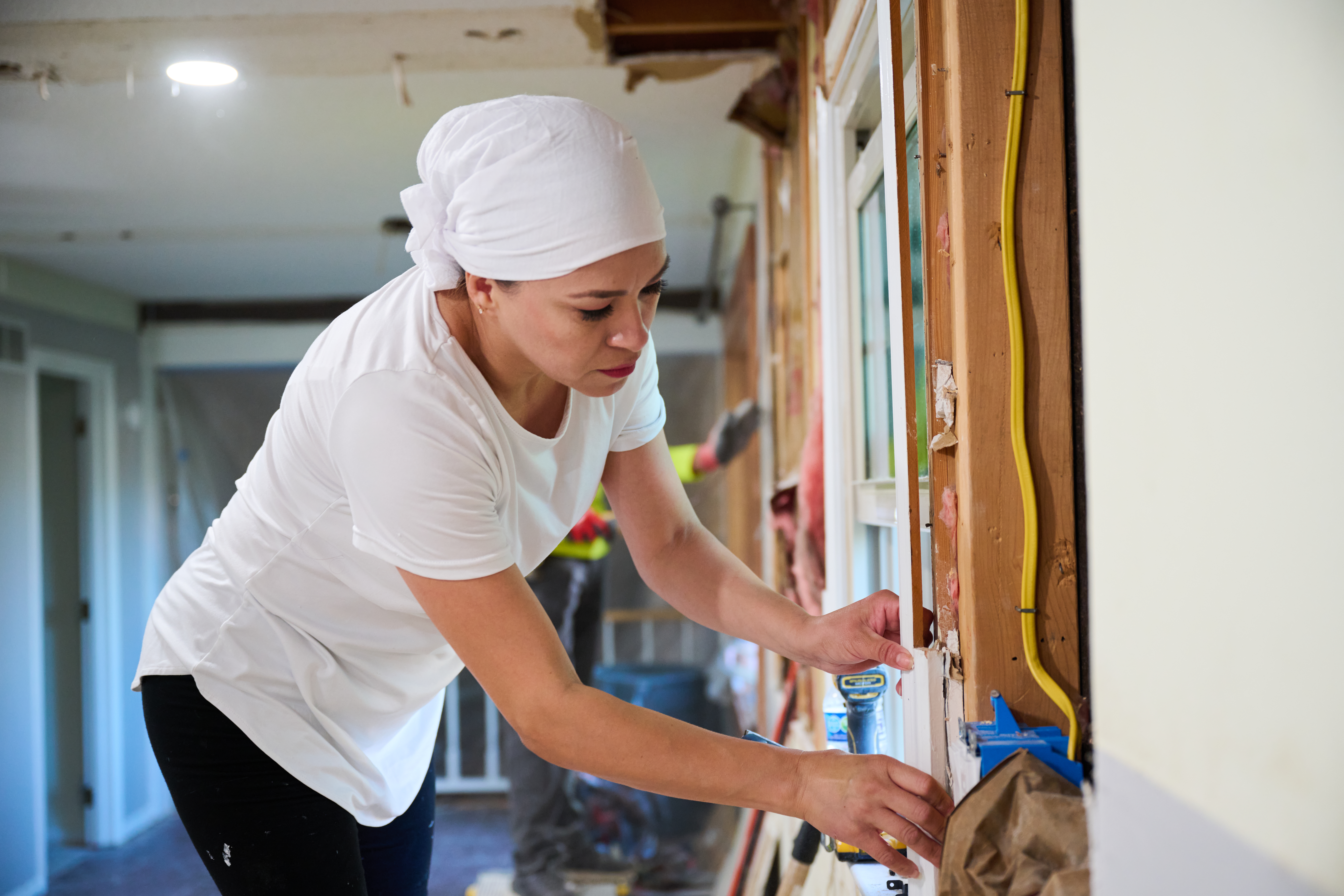
From a small window over the kitchen sink to a grand living room window, picture windows add light and great views. Learn how much picture windows cost.
Sliding windows will set your home on the right track


Sliding windows can transform the look and feel of your home.
They are wider than they are tall, opening and closing along a horizontal track.
Sliding windows are perfect for rooms that need more light, space, or air.
Expect to pay between $150 and $800 for parts.
Labor adds another $150 to $800 to this project.
Replacing windows is one way to give your home a dramatic facelift—and enhance energy efficiency, security, and comfort—at a cost that’s relatively modest for such effects. Horizontal sliding windows can be a great choice because they’re simple to operate and maintain while expanding your view of the outdoors.
These windows offer a variety of unique features and benefits, but they don’t suit every home. It’s important to consider the pros and cons before deciding whether a sliding window is right for your window replacement project.
As the name suggests, sliding windows—also called sliders or gliding windows—open and close horizontally, moving back and forth along a track. This distinguishes them from single- and double-hung windows, which open vertically, and casement windows, which open outward, or fixed window styles, such as picture windows and bay windows, that are not designed to open and close.
Sliding windows are typically larger than double-hung types and ideal for spaces where you want a big view or lots of sunlight. Most sliding windows manufactured today feature double panes of glass, making them highly energy-efficient. Sliding window frames come in a variety of materials, including vinyl, aluminum, wood, fiberglass, and steel.
There are three primary reasons a homeowner might consider adding replacement sliding windows to their home.
Windows have a longer lifespan than many other features of your home, but they are not eternal. Depending on the type of windows you have and the conditions of the area in which you live, window frames typically last between 20 and 50 years.
The telltale signs that a window needs replacement include warping frames, fogging glass, rising energy bills, and a drafty home. When the time comes, window installers can easily swap out an old sliding window frame for a new one—or, without too much difficulty, replace different styles of windows with sliding ones.
In other circumstances, homeowners might turn to replacement sliding windows when their existing windows of a different style aren’t adequately serving the rooms in which they’re located.
Sliding windows can be the perfect solution in stuffy rooms, for example, because they tend to open wider and better ventilate a room—or for dark ones since they bring in so much light.
Sliding windows can also be used to completely change the character of a room for less money than a full-scale renovation. They are a great choice for making small rooms seem larger, both by drawing the eye horizontally along the wall and bringing in more of the outdoors.
Homeowners typically pay between $150 and $800 apiece for sliding windows. Installing a new, full-frame window will add another $150 to $800 in labor for each window, while a retrofit that requires installers to insert new sashes in the existing frame runs between $100 and $300 for each.
A homeowner who is relatively handy can safely take on DIY window replacement, so long as you’re swapping out one or two old sliding windows for new ones. If the windows are custom designs or require the installation of a new frame, you’ll want to call in a local window replacement installer.
The same pros who usually install double-hung windows can be relied upon to properly install sliding ones, since the process is quite similar.

Sliding windows are a popular choice for window replacements—and for good reason. Here are some of the benefits they offer homeowners.
The larger size of sliding windows provides a wider window frame for outdoor views and sunlight than that of traditional double-hung windows. Its design also allows for better airflow, as you get ventilation from the full height of the window when left open. Some modern designs even feature a sliding screen. The result is a brighter home and more fresh air.
Because they open side to side, sliding windows are simple to operate. This is ideal for hard-to-reach places, such as above kitchen sinks or in small bathrooms, as well as for older adults who may have a harder time exerting the necessary force when lifting or cranking other window styles.
Sliding windows glide along a track without the use of springs, pulleys, or cranks. This means they require fewer moving parts to operate than other window styles, making repair and maintenance relatively simple.
Though a single sliding window costs more than a double-hung window, sliders can be much wider. This means that fewer windows are required to fill the same amount of space. Additionally, sliding windows tend to cost less than casement windows.
Some homes have storm windows and screens, which are an extra layer of windows installed outside their primary windows for added protection and insulation from wind and weather. Because sliding windows tend to feature insulated double panes of glass, they eliminate the need to climb up on ladders and remove or replace seasonal storm windows.
In homes with lower ceilings, tall and bulky double-hung or casement windows can dominate the shorter walls and make a room feel smaller. Sliding windows offer a great alternative for such spaces, drawing the eye horizontally and making the ceilings feel a little higher.
While sliding window replacements are the perfect solution in some rooms, there are factors that make them less desirable in others.
Due to their larger size and horizontal length, your home’s existing windows may not be oriented to fit a sliding replacement window without costly renovations. While prairie or contemporary home styles are well-suited to sliding windows, colonial, Cape Cod, and bungalow styles tend to have vertical window orientations.
The U-shaped track of a sliding window tends to collect dirt over time, which requires regular cleaning or the window will become more difficult to operate. Dustier environments will require more frequent cleaning. Additionally, unlike double-hung windows, sliding windows on upper floors may require you to hire local window cleaners to get the outsides looking spick and span, since they do not tilt inwards for cleaning.
The point where the sashes of a sliding window meet isn't always pressure-closed, meaning sliding windows often don't seal as tightly as other window styles. You can avoid this by installing a window with a locking mechanism that pulls the two sashes together when closed.
Compared to other types of windows, sliding windows are more likely to rattle in their frame in response to gusts of window or outdoor movements, like heavy trucks driving by.
From average costs to expert advice, get all the answers you need to get your job done.

From a small window over the kitchen sink to a grand living room window, picture windows add light and great views. Learn how much picture windows cost.

Dealing with a damaged window frame? Learn how much window frame replacement costs and what factors have an impact on your total.

Garden windows can be a great addition to your kitchen, adding light and a place to grow plants. Costs depend on material, size, and customization—learn how much you can expect to pay.

When it comes to vinyl vs. aluminum windows, you should consider price, insulation, and longevity. Learn about other differences and which is best for you.
If it's time to replace or install a new window, you have plenty of stylish options. Here are 15 types of windows and the best place for each one in your home.

If you’re planning to install a new window or door, you may come across lintels. But what is a lintel? Check out this guide for everything you need to know.